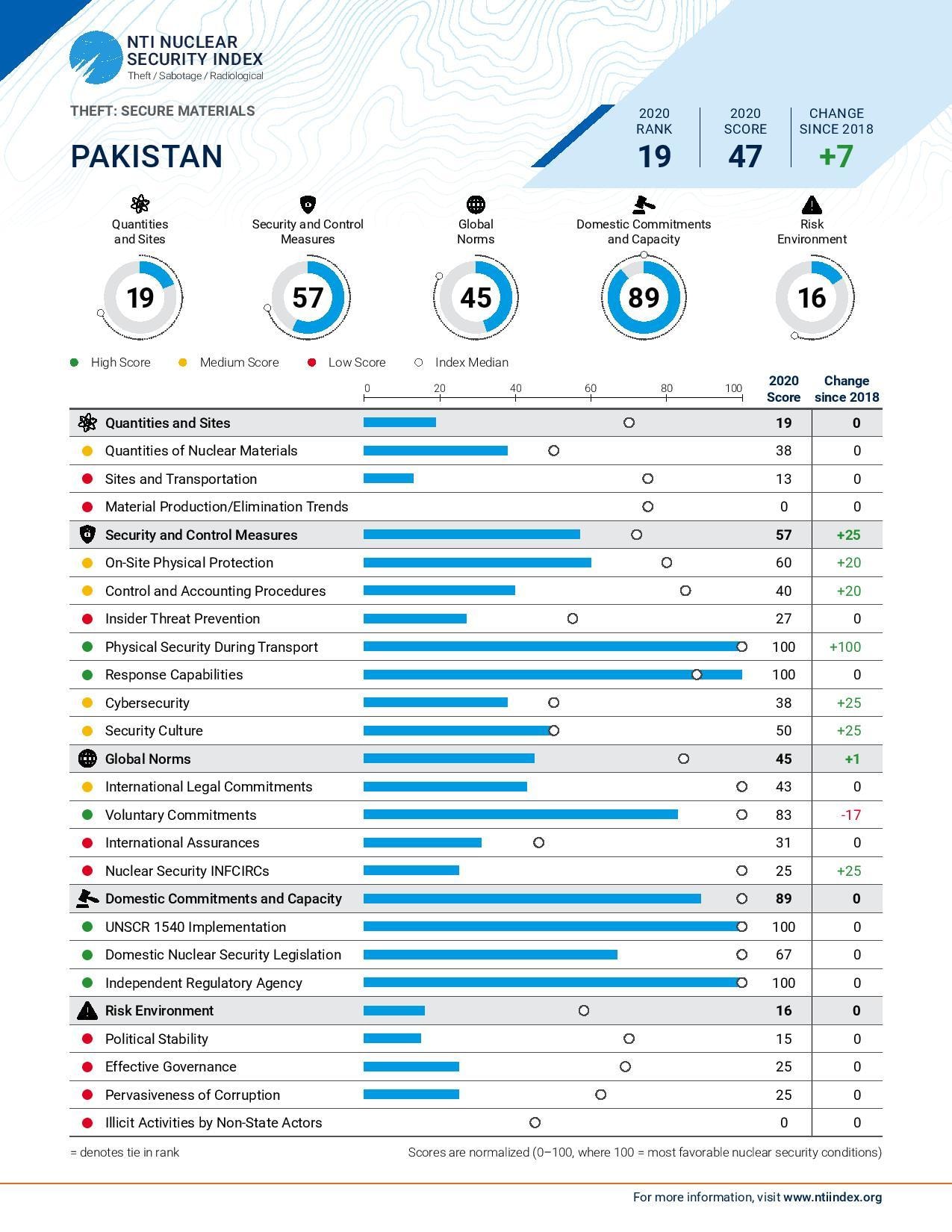A United States study on worldwide nuclear materials security for 2020 has said Pakistan is the "most improved country" after increasing its overall score by seven points.
On the whole, Pakistan ranked 19 with 47 points, while India ranked one place below at 20th spot with 41 points.
According to the National Threat Initiative Nuclear Security Index report for 2020, the majority of improvements were in the Security and Control Measures category, which increased by 25 points, because of the passage of new regulations.

An improvement was also witnessed in the Global Norms category, in which the ranking improved by one point.
The report stated that Pakistan's improvements in the Security and Control Measures category are "significant" because "strengthened laws and regulations result in durable boosts in Pakistan’s score as well as provide sustainable security benefits".
It noted that the country has steadily improved in this category over time with the passage of new regulations, improving by eight points in 2014, two points in 2016 and six points in 2018.
"The country's score in 2014 improved owing to new regulations for on-site physical protection. In 2016, it passed new cybersecurity regulations. In 2018, it improved its inside threat protections.
"[Pakistan's] newest regulations mark a much larger shift. Compared with other countries’ score improvements in the Security and Control Measures category, Pakistan’s increase of 25 points is the second-largest improvement of any country since the Index first launched in 2012."
The report also highlighted Pakistan's ranking in other categories.

"Pakistan scores high (67-100) in Domestic Commitments and Capacity, medium (34-66) in both Security and Control Measures and Global Norms, and low (0-33) in Quantities and Sites, owing to its continued increases in quantities of weapons-usable nuclear materials, and low in Risk Environment. "
The report also highlighted key steps required to fill existing gaps. These include requiring more stringent control and accounting measures, strengthening regulations on insider threat prevention, requiring security culture assessments, ratifying the International Convention for the Suppression of Nuclear Terrorism, and taking voluntary actions to support the International Atomic Energy Agency (IAEA).
It also ranked Australia first for the fifth time, among countries with weapons-usable nuclear materials. The country was also ranked first in the sabotage ranking for the third time. "Despite its repeated position at the top of the ranking, Australia continues to better its score, improving by one point in both rankings," it stated.
In the ranking for 153 countries and Taiwan without materials, New Zealand and Sweden tie for first, it said.
The report further noted that global progress on protecting nuclear materials against theft and nuclear facilities against acts of sabotage had slowed significantly over the past two years, despite ongoing, major security gaps.
"An alarming development at a time of growing global disorder and disruption, the decline in the rate of improvement to national regulatory structures and the global nuclear security architecture reverses a trend of substantial improvements between 2012 and 2018," it said.
The Index is a first-of-its-kind public benchmarking project of nuclear security conditions on a country-by-country basis in 176 countries, according to the site. Initially launched in 2012, the NTI Index, prepared with the Economist Intelligence Unit (EIU), has sparked international discussions about priorities required to strengthen security and most important, is encouraging governments to provide assurances and take actions to reduce risks, it said.















































